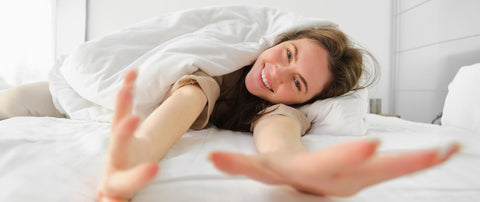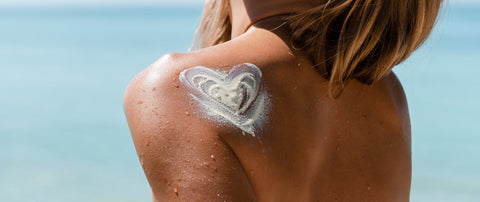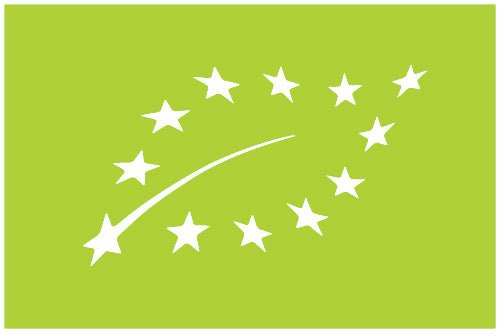The long-awaited summer is in full swing: warm weather, visits to the outdoor pool, soaking up the sun on the balcony or in the garden or simply a relaxed barbecue evening with friends and family. But even at night, the temperature "unfortunately" often doesn't cool down - the dark side of summer is slowly but surely making itself felt. For many, the hot temperatures - especially at night - often cause problems and interfere with rest at night. In this article, you can find out everything you need to know about sleep and how melatonin and tryptophan can influence sleep during the summer months.
Inhaltsverzeichnis
Why is a good night's sleep so important?
Sleep is a basic human need and restful sleep means a better life. We need it to rest and regenerate our bodies. During sleep, our bodily functions run on the back burner: Blood pressure, heart rate and body temperature drop. The cells undergo a repair process, blood sugar levels and hormones are regulated and the immune system is strengthened. The brain also processes and stores countless pieces of information. Unfortunately, we often notice that we are lacking sleep when our body simply has no energy left and we are totally exhausted.
But how much sleep do we actually need? The National Sleep Foundation convened a panel to determine the optimal amount of sleep based on scientific evidence. They came to the conclusion that 7-9 hours is sufficient for young adults and adults. 1
If you compare this with the results of a survey conducted in 2021, the majority still fall short of the recommended amount of sleep, because according to the survey, 68% of Germans sleep an average of 5-7 hours per night. 2 We should give our bodies the rest they need. After all, it runs at full speed around the clock.
Not only too little sleep, but also poor sleep can lead to the body not regenerating as it should. This often manifests itself in memory problems, difficulty concentrating, mood swings, tiredness, slower reactions, susceptibility to stress and irritability. The immune system and metabolism also suffer. You can recognize this by the fact that colds occur more frequently or you gain weight even though your eating habits have not changed.
Summer time: making sleep more difficult
In addition to the already shortened and poor sleeping times, the hot summer and the exhausting nights make us almost desperate. We feel tired, but we can't sleep a wink because it's stuffy, hot and humid at the same time. Even changing position only helps for a short time. This situation is pure stress for the body. We can't get any rest and linger in a light sleep stage instead of entering deep sleep so that our body can regenerate.
In an interview with SWR radio, sleep researcher Hans-Günter Weeß answers the question of why heat makes us sleep so badly with the following answer: "You need to know that sleep can only occur if we experience a high level of relaxation on three levels - on a mental level, on an emotional level and on a physical level. Physical relaxation is the problem at extreme temperatures. This applies equally to heat and cold."
One way to combat this would be, "(...) for example, to take a warm shower in the evening before going to bed. This opens the pores and the heat can be released from the body better and we are more likely to feel cold," he adds. 3
There may be other reasons besides the heat why we sleep less well in summer. One of them is that it gets dark later and light earlier. As you may already know, the sleep-wake rhythm is dependent on light stimuli. Melatonin is important to prepare the body for sleep. As the sun sets quite late in summer, melatonin production is also delayed. This can lead to a delay in getting a good night's sleep - and the process of falling asleep is prolonged.
The time difference when traveling can also significantly disrupt your sleep rhythm. This is known as jet lag. This means that the internal biological rhythm does not match the time environment of the destination country. Here is a small example to give you a better idea: You take off at 7 a.m. in Germany and fly around 12 hours to Peru. Due to the summer time difference of 7 hours, you land there at around 2 pm local time. In Germany, on the other hand, it would already be 9 pm. That means tiredness - and as early as midday.
This makes it all the more difficult to stay awake and sleep at night as usual. It takes some time for the body to synchronize with the current time zone. During this time, many people suffer from sleep disorders and problems.
Control of the sleep-wake rhythm
Melatonin - also known as the sleep hormone - is a hormone produced naturally in the body that regulates the sleep-wake cycle. Melatonin levels influence whether we feel tired or awake. As soon as it gets dark, the body produces melatonin and our body can prepare for a good night's sleep. Bright light, on the other hand, ensures that melatonin production is inhibited and signals the body to stay awake. The lower the melatonin level, the more tired we feel.
Melatonin is also found naturally in many foods that can be consumed before going to bed. It can be found in the following foods:
- Nuts
- Bananas
-
Sour cherries
-
Pineapple
-
Oat flakes
-
Linseed
-
Milk
- Fish
- Eggs
- Tomatoes
L-tryptophan is another hormone that is important for our circadian rhythm. Although it is not directly responsible for the production of melatonin, it nevertheless plays a central role in its production. L-tryptophan is converted into 5-HTP in the body. 5-HTP (5-hydroxytryptophan) in turn is a precursor of serotonin, a messenger substance that is responsible for mood and sleep. In order to ultimately produce melatonin, the body relies on the mood hormone serotonin - and so the circle closes. In order for the body to produce enough melatonin, there must also be enough serotonin.
L-tryptophan is found in animal proteins in particular, including fish - especially salmon - eggs, seafood, nuts and dairy products.
Melatonin and tryptophan as food supplements?
Melatonin is one of the most popular remedies worldwide when it comes to treating sleep problems. L-tryptophan is also often used together with melatonin to improve the quality of sleep. But can melatonin and L-tryptophan really help and promote restful and quality sleep, especially in summer? We would like to explain and discuss this in more detail based on the current study situation.
Studies on melatonin
The first study we would like to introduce to you dates back to 2022. This meta-study summarized randomized clinical trials to find out whether melatonin has an impact on sleep quality as measured by the Pittsburgh Sleep Quality Index (PSQI). Adults with various diseases were examined.
The results showed that treatment with melatonin does indeed have a positive effect on sleep quality. However, this only applied to adults with respiratory diseases, metabolic disorders and primary sleep disorders, but not to those with mental disorders, neurodegenerative diseases and other illnesses. 4
Another study looking at the aspect of sleep onset time found that melatonin was significantly effective in shortening sleep onset time and extending total sleep time in a study of adults and children diagnosed with primary sleep disorders. Studies that were conducted over a longer period of time and also used higher doses of melatonin showed stronger effects in terms of shortening the time it takes to fall asleep and extending the duration of sleep. Compared to the placebo, the general quality of sleep improved in the group taking melatonin. 5
A systematic review and meta-analysis showed that an earlier intake - 3 hours before the desired bedtime and a higher dose of 4 mg/day - could optimize the sleep-promoting efficacy of melatonin. The amount commonly used in clinical practice is 2 mg 30 minutes before bedtime. 6
If you are considering taking a higher amount of melatonin, we advise you to discuss this with your doctor. In addition, melatonin from 1 mg is only available with a prescription.
Studies on melatonin and jet lag
Many people turn to melatonin when traveling long distances, as it plays an important role in regulating the sleep-wake cycle. In order to substantiate this scientifically, randomized studies with air travelers, flight personnel or military personnel who were administered melatonin orally and compared with placebo or another medication were used.
Nine out of ten studies have shown that melatonin helps against jet lag if you take it at the right time. This means at bedtime at your destination, i.e. around 10 pm - midnight. If melatonin is taken at the wrong time, it can lead to daytime sleepiness and delay adjustment to time zones. In addition, doses between 0.5 mg and 5 mg help to support sleep quality and falling asleep quickly. More than 5 mg should not be taken, as this does not increase the benefits. Overall, melatonin therefore helps to reduce and prevent jet lag. 7
Anzeige

Studies on tryptophan
With regard to L-tryptophan, meta-analyses also showed that supplementation with tryptophan can shorten the waking time after falling asleep, which is an important factor for sleep quality. In addition, the group that received ≥ 1 g of tryptophan had a shorter wake time after falling asleep than the group with less than 1 g of tryptophan supplementation. 8
Further exciting results were also provided by a study from 1979, which investigated the effect of different doses of L-tryptophan on people with mild problems falling asleep. A dose of 1 g significantly shortened the time it took to fall asleep. Smaller doses also showed positive results. A dose of 0.25 g was also sufficient to improve deep sleep. This is an exciting observation, as we consume between 1/2 g and 2 g of tryptophan in our diet. 9
Supplementation does not combat the cause
In addition to the studies mentioned above, there are numerous other medical case studies and meta-analyses that confirm the effectiveness of melatonin and tryptophan in some cases - including jet lag, travel and short-term sleep problems. However, it must be urgently added that this only combats the symptoms, but the actual cause of the sleep problems remains unsolved.
In order to achieve long-term improvement, the existing problem must be identified and treated. This can often be psychological stress, fear of the future, stress and much more. In urgent cases, we advise you to consult your doctor.
More tips for better sleep in summer
In addition to the melatonin- and tryptophan-rich diet and supplements, we would like to give you some more tips to finally put an end to sleepless summer nights. The tips are simple, effective and can be easily integrated into your daily routine:
Room temperature and sleeping environment:
These two aspects are essential for good quality sleep. A cool room temperature helps the body to naturally lower its temperature during sleep. A cool temperature also signals to the body that it is time to go to sleep. In summer, you can open the windows wide at night to let in the cooler air. Fans are another option. Many people also hang wet towels on the fan to cool the air.
It is also important to darken the room, as light sources have a disruptive effect and can hinder melatonin production.
-
Avoid sources of noise
What else can be annoying besides bright light? Exactly: loud noises! Make sure that the TV, cell phone, tablet etc. are switched off in your sleeping environment to avoid unwanted background noise. If it's still loud in your home, for example because you have noisy neighbors, you can also use ear pads or Oropax.
-
Install routines
Routines in everyday life, but also in the evening, e.g. sleep rituals, can help to bring a certain structure. This can calm and relax the body and mind, as you already know what to expect. The brain knows: now I can shut down, because it is slowly going into rest mode. This supports the sleep rhythm enormously and can counteract sleep problems.
-
Avoid blue light
Blue light is also associated with disrupting the sleep-wake cycle as it interferes with melanin production. It also causes eye pain and headaches for many, as the bright light is unnatural and difficult for the eye to focus on. It is best to put your cell phone away 2 hours before going to bed and treat yourself to some relaxing time.
-
Bright light in the morning
Getting bright light in the morning helps to stabilize your rhythm and stimulate melatonin production. This prevents drowsiness directly after getting up and ensures a fit start to the day.
-
Light food in the evening
Fatty and hard-to-digest foods before going to bed are the real disruptors of a good night's sleep. This is because the body is busy maintaining digestion and thus prevents the rest phase from occurring. The result: sleep problems and poor sleep quality.
-
Supplements
Food supplements are ideal when it comes to gently accompanying the body to sleep when certain circumstances such as jet lag or extreme summer heat do not allow it. Melatonin is now also available as sprays or in tea blends with additional herbs. But be careful: melatonin does not fight the cause!

-
Warm shower before going to bed
To prepare for sleep, the body lowers its natural body temperature. A warm shower before going to bed helps to weaken the blood vessels in the skin so that the internal heat is released to the surface of the skin. This supports the body's natural cooling process, which is why you should definitely consider taking a warm shower before going to bed on hot nights.
-
Always have water to hand
The increased sweating during the night makes you feel thirsty as your body loses a lot of water. A bottle of lukewarm water will support your hydration.
-
Afternoon nap
A short nap during the day (15-30 minutes) can strengthen the body and restore cognitive performance. It is important that the nap does not last longer than 30 minutes, otherwise the body will fall into the so-called deep sleep phase. If you wake up and get out of bed during this time, you often feel more exhausted and drained than before.
Conclusion
Sleepless nights are not and should not be a reason not to look forward to summer. After all, summer is the time when we are particularly active and social and should feel good all round. Nevertheless, hot nights and humid air can affect the quality of our sleep. With the right tips and the targeted use of melatonin and tryptophan, it is possible to get through the unbearable summer nights and enjoy the following day.
Sources
- Hirshkowitz M, Whiton K, Albert SM, Alessi C, Bruni O, DonCarlos L, Hazen N, Herman J, Adams Hillard PJ, Katz ES, Kheirandish-Gozal L, Neubauer DN, O'Donnell AE, Ohayon M, Peever J, Rawding R, Sachdeva RC, Setters B, Vitiello MV, Ware JC. National Sleep Foundation's updated sleep duration recommendations: final report. Sleep Health. 2015 Dec;1(4):233-243. doi: 10.1016/j.sleh.2015.10.004. Epub 2015 Oct 31. PMID: 29073398.
-
Statista. (n.d.). Schlafdauer der Deutschen. In Statista. https://de.statista.com/statistik/daten/studie/1277683/umfrage/schlafdauer-der-deutschen/
-
Eich, S. (2023, 10. Juli). Hitze im Sommer: Wie wir nachts gut schlafen. SWR Aktuell. https://www.swr.de/swraktuell/radio/hitze-sommer-schlafen-koerper-getraenke-warm-duschen-100.html
- Fatemeh G, Sajjad M, Niloufar R, Neda S, Leila S, Khadijeh M. Effect of melatonin supplementation on sleep quality: a systematic review and meta-analysis of randomized controlled trials. J Neurol. 2022 Jan;269(1):205-216. doi: 10.1007/s00415-020-10381-w. Epub 2021 Jan 8. PMID: 33417003.
- Ferracioli-Oda E, Qawasmi A, Bloch MH. Meta-analysis: melatonin for the treatment of primary sleep disorders. PLoS One. 2013 May 17;8(5):e63773. doi: 10.1371/journal.pone.0063773. PMID: 23691095; PMCID: PMC3656905.
- Cruz-Sanabria F, Bruno S, Crippa A, Frumento P, Scarselli M, Skene DJ, Faraguna U. Optimizing the Time and Dose of Melatonin as a Sleep-Promoting Drug: A Systematic Review of Randomized Controlled Trials and Dose-Response Meta-Analysis. J Pineal Res. 2024 Aug;76(5):e12985. doi: 10.1111/jpi.12985. PMID: 38888087.
- Herxheimer A, Petrie KJ. Melatonin for the prevention and treatment of jet lag. Cochrane Database Syst Rev. 2002;(2):CD001520. doi: 10.1002/14651858.CD001520. PMID: 12076414.
- Sutanto CN, Loh WW, Kim JE. The impact of tryptophan supplementation on sleep quality: a systematic review, meta-analysis, and meta-regression. Nutr Rev. 2022 Jan 10;80(2):306-316. doi: 10.1093/nutrit/nuab027. PMID: 33942088.
- Hartmann E, Spinweber CL. Sleep induced by L-tryptophan. Effect of dosages within the normal dietary intake. J Nerv Ment Dis. 1979 Aug;167(8):497-9. PMID: 469515.




 DE-ÖKO-006
DE-ÖKO-006
